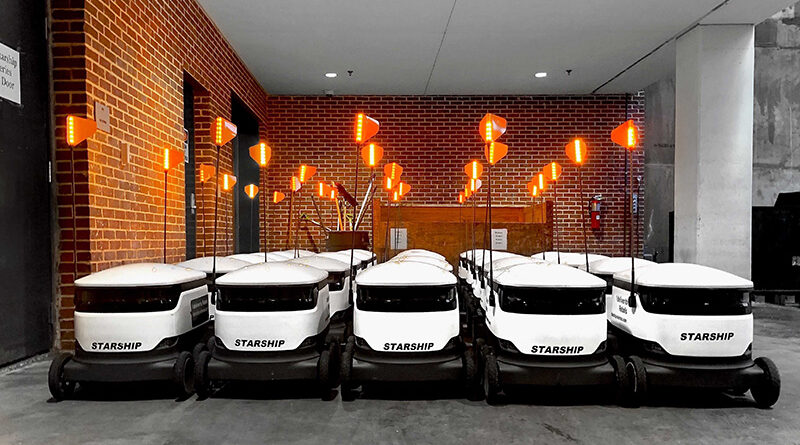Happenings on the Hill
Feed me, robot
Are you a hungry SMU student, faculty member, or employee? These are the droids you are looking for. SMU has a new service that provides food delivery robots. Thanks to Starship Technologies, students can get food and a robot waiter with the Starship Deliveries app.

Sixteen robots capable of carrying 20 pounds will bring customers’ orders from nine locations. The robots, designed to learn, have computer-based vision navigation to get from one location to another. They can cross streets and climb curbs. Weather is no issue. The app is already available for download for anyone who is or will be hungry.
Dream Week
Though SMU students typically return to campus after Martin Luther King Jr. Day, the civil rights leader’s enduring influence is celebrated with Dream Week to open the spring semester.
Activities kicked off with a Unity Circle ceremony for students, faculty, and staff on Jan. 19 and continued with such activities as a campus screening of the film Selma and a day of service.
Getting in the zone
SMU Alumni Garry Webber has gifted $50 million to help build a three-tiered end zone complex at Gerald J. Ford Stadium. The largest gift in the history of the Athletic Department kickstarts the $100 million fundraising effort for an expansion that will support all 484 student-athletes. The teams will get new locker rooms, a weight room, position-specific meeting rooms, a team auditorium, and a full kitchen and training table. The facility will also house coaches, support staff, and video and recruiting services.

A new concourse will offer more for fans, expand facilities, improve accessibility, and add a breezeway that joins the stadium’s entryways to the internal field.
“Both SMU and Dallas have played a substantial role in my life, and I feel honored to pay it forward to the next generation of Mustang student-athletes and fans,” Weber said.
Hope = Change
SMU psychology professor Nathan Hudson has been researching what makes people change for the better and whether it can be done without us even knowing it.
“The idea of personality trait change – especially other people trying to change an individual’s personality – can sound scary. But whether we recognize it or not, society is filled with interventions designed to try to change our personality traits,” he said. “For instance, elementary school is a giant intervention designed to help children become more intelligent, yes, but also kinder and more sociable, responsible and hardworking.”
His research concluded that this could possibly be done, but only in some cases. When it comes to emotional stability, it would only happen if people wanted to change. A person could focus on learning a conscientiousness-building task by repeating it consistently until it becomes internalized.









